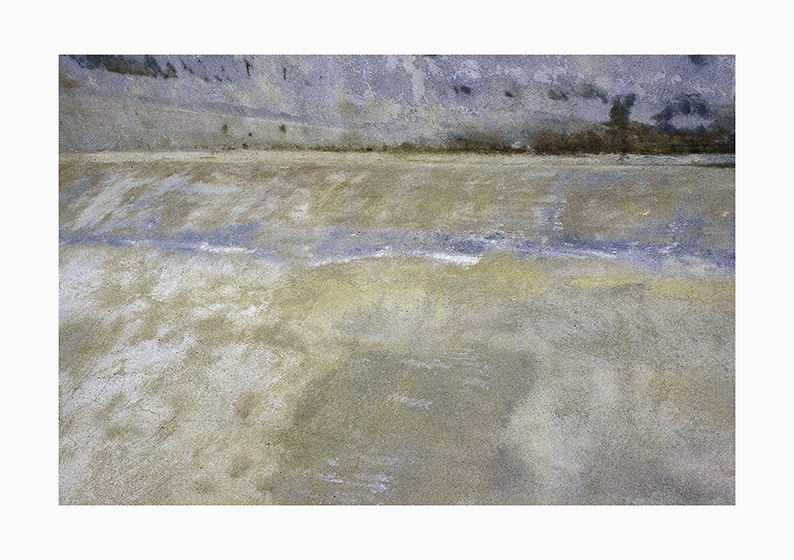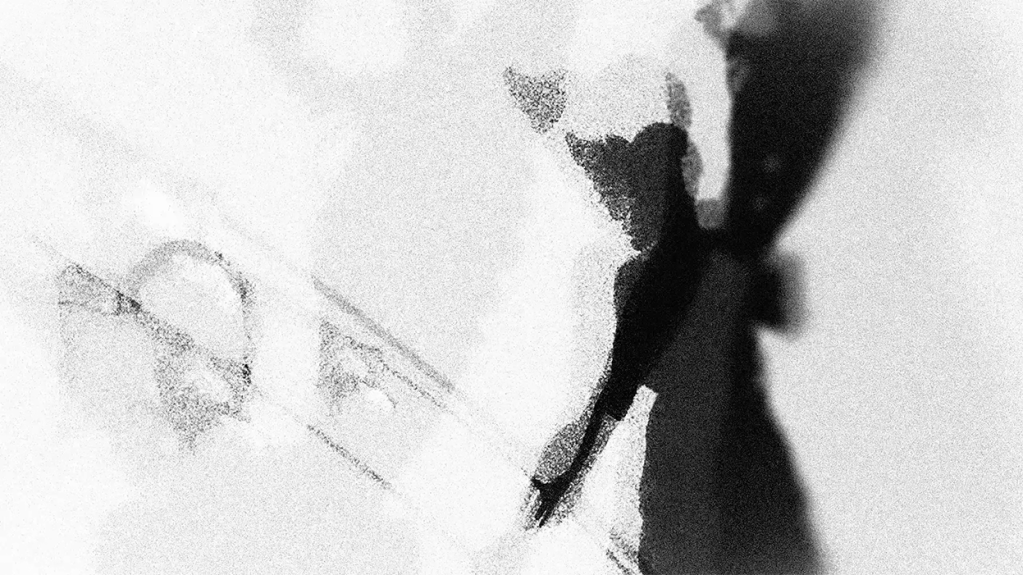
Dr Frank Poole is a character in Stanley Kubrick’s celebrated, technically-breathtaking think-piece, 2001 – A Space Odyssey (1968). This is a film I admire very much, but one of my favourite things about 2001 are Dr Frank Poole’s shorts. Here’s why.
A year or so after finishing my A-levels, I learned something surprising about one of my former English teachers. In addition to her passion for the works of Shakespeare and so forth, she was also writing pornographic fan-fiction under an online pseudonym. This was all such a long time ago, the internet was in its infancy, but nonetheless, the teacher in question was charting the ongoing adventures of Walter Skinner and Alex Krycheck and disseminating her stories on niche web-based forums.
You only need to know two things about Walter Skinner and Alex Krycheck, the first being they are both supporting characters in the science-fiction/paranormal show, The X-Files, the second being they are both heterosexual male characters in the show and at no point in any episode do they fuck.
But not so in the stories written by my former-English teacher. In her fiction, Walter Skinner and Alex Kyrcheck cannot keep their hands off each other. In her stories, Walter Skinner and Alex Kyrcheck are positively priapic, with no detail spared, however anatomical, however anglo-saxon, however gymnastic.
This was my first encounter with slash fiction, a literary subgenre deriving its name from the / between whatever same-sex fictional characters are engaging in graphic sexual relations with each other, as in Skinner/Krycheck. Slash-fiction is said to originate with Kirk and Spock, that while a large proportion of Star Trek‘s famously loyal audience were nestled on their settees enjoying the utopian charms of Gene Rodenberry’s rosy view of a federation of planets, another demographic within that same loyal audience were intuiting something no less progressive – an oblique sexual frisson between William Shatner’s impulsive captain and Leonard Nimoy’s cool, logical science officer, consummated ‘off-screen’ in the imaginations of amateur writers and their readers.
When Roland Barthes proclaimed so famously, ‘The author is dead’, he meant it wasn’t to the originator of a particular text we should look for its definitive explanation (be it a book, a play, a film, tv show, photograph or whatever), but rather to the consumers of the text, its audience, us. What follows from this is there are as many meanings to something as there are recipients for it; that anything we produce produces a multiverse, and if meaning is a palimpsest, then to try and fix, limit or arrest interpretation is to tilt foolishly at windmills.
All of which brings me back to Dr Poole’s shorts.

I’ve watched 2001 – A Space Odyssey many times. I screened it for students every year – the whole thing – which always took some pedagogical resolve. With its long takes, overture and intermission, thin-dense story and narrative opacity, 2001 is no one’s idea of an effortless viewing experience. Kubrick’s crystalline visuals, soaring classical score and weighty cosmic ambitions would always have to compete with the pointed rustling of crisp packets and performative sighing, which was established undergraduate code for, ‘When will this fucking film end?‘
But Kubrick isn’t interested in entertaining us exactly. His interests lie in producing the conditions for expansiveness and contemplation. 2001 slows us down so we can think about the images on screen and the ideas they comprise. In the precision of its slowness, in its insistence we keeping looking at something even beyond what is truly comfortable, 2001 is an exercise in accessing some other state, in the same way staring at any one thing for a long period of time encourages the mind to project itself elsewhere.
I don’t know when it happened, which screening of my many screenings in particular, but at some point, as I floated freely in the space Kubrick created for me, I apprehended something new about the film. I began to read some of its visual messaging differently, discerning an alternate text, adding things up using the abacus of my own identity. I figured something out (and no, not the ending of 2001, never that), and since that moment, I can no longer ‘unknow’ what I think I know about 2001, or unsee how I’m seeing things, and now what I think I know about 2001 is this: the film’s middle section, entitled Jupiter Mission – Eighteen Months Later, is not only a prescient cautionary tale about Artificial Intelligence, but also a gay love triangle between two scientists and a super-computer, or put more succinctly: Dr David Bowman / Dr Frank Poole / HAL 9000.

Discovery crew member, Dr David Bowman

Discovery crew member, Dr Frank Poole

HAL 9000
My erstwhile English-teacher and amateur pornographer was convinced the writers of The X-Files were complicit in twanging gently at the libidos of the show’s fanbase, sprinkling episodes with homoerotic breadcrumbs so as to draw audiences more deeply into forming binding emotional attachments to their characters. In this way, she argued the ‘queering’ of Skinner and Krycheck was not in fact projection or distortion or superimposition, but rather an act of co-authorship. 2001 is hardly about human relationships at all, which is why it makes for such antiseptic viewing for some audiences. 2001 is about human existence, which isn’t the same thing. It’s when the film does focus on people I start to put this film together differently, because one character’s on-screen presentation is different to the rest.
We are actively encouraged to objectify the character of Dr Frank Poole in a way conspicuous and distinct from any other character in 2001. We are invited to enjoy the act of looking at him, who we first encounter running around the Discovery’s centrifuge. The camera drops low in front of Dr Poole, tracking backwards, keeping time, and we are directed in this way to stare up at his crotch – and I do. I suspect we all do. The view is an exceptionally good one. How can we not enjoy the spectacle of Frank’s muscled thighs? When the camera shifts, we follow along behind him, his round solid buttocks perching attractively just above the bottom edge of the frame. We need only substitute Frank in our imaginations with a female scientist to certify these framing choices are classically objectifying. If a woman were running around Discovery’s centrifuge in just her gym-shorts and a tight t-shirt, and the camera so instructed us to look at her genitals and then again at her bottom, we would appreciate very well this was the male gaze in action. We also see Frank jabbing the air as he jogs, shadow-boxing. In this way we are told Dr Frank Poole is no egg-head, hot-house-flower or etiolated academic. He is athletic, strong, masculine, and with his fine head of thick black hair, Dr Frank Poole is our man’s man, our matinee idol, an obvious sex object treated obviously.




A short time later, Frank reclines on a sun-bed of sorts in just those same short white shorts, his white socks and white running shoes. While this scene continues Kubrick’s fascination with presenting the likely realities of space travel, it is also an opportunity to present Dr Poole’s very nearly naked body. It’s another long scene, our eyes given little else to do but rove. At one point we cut to a tighter shot of Frank looking across at the tele-viewer, where his parents are wishing him happy birthday. This framing couldn’t be more sensual. We study his pretty lips and tan-coloured nipple. We apprehend his slumberous eyes. This is a lover’s view of Dr Frank Poole. Hell, we’re nearly watching this guy sleep, and we all know how loved-up you have to be to do that.
The next time we meet Frank, he’s eating from a tray of pureed space food dressed in a white towelling robe. He is freshly showered after his exertions and languid tanning session, relaxed, un-uniformed, free-balling. What is it about the humble white towelling robe that speaks so directly to the nakedness underneath it in a way other sorts of clothing do not? Indeed, there is even something a little Hefner-esque about how relaxed Frank looks in his dressed/undressed state.



When I consider these introductory shots of Frank, his on-screen presentation – the crotch shots, the spectacle of his thighs, arms and torso, the proximity of his lips to the screen and that soft warm disc of nipple – I wonder whose gaze is (de)constructing him so? Mine certainly – I admit it freely – but I’m inclined to think about Kirk and Spock too, the way in which the contrast of their differences drives the engine of their homoeroticism. Like Kirk, that playboy with the perennially torn shirt, we know Frank Poole has a swinging dick and his handy with his fists. Like Spock, Frank’s human companion on the Discovery, Dr David Bowman, is configured in opposition. Bowman is presented as more cerebral, more sensitive (he is an artist, drawing the other crew members asleep in their pods). There is something of the android about him – a hint of Zuckerberg – and in this way, Bowman is closer to HAL, an affinity reciprocated by the super-computer, who engages with Bowman more often than with Frank, and always more revealingly. I’m compelled to conclude Bowman is repressed, careful and cautious in a way that makes him different to Frank Poole. We can’t easily imagine Dr Dave lounging about the place in just a loosely tied dressing gown.
Sometimes I think the camera watches Frank in the way it does because this is what it’s like to be David Bowman, who is living in intimate proximity with someone he desires. It’s like a flat share when one roommate insists on walking about in just his pants or bath towel, which is normal for him and non-sexualised, and speaks to the comfort he feels in his own skin and his confidence in its display. Dave Bowman is the other room mate, the tidier one, the more controlled one, for whom these everyday flashes of thigh are utterly arresting, troubling even. A secret like that can transform even the most ordinary activity – jogging, sun-bathing, eating dinner in a dressing gown – into giddy high-points of erotic fascination.

But maybe I’m wrong about this? I even think I might be. My hypothesis assumes David is repressed and Frank is unaware. I’m assuming this is a relationship forged out of denial, of secret-looking, out of a love that dare not speak its name. Oh dear! How old fashioned of me, how formulaic! Maybe David and Frank are not homoerotic together, but just homosexual? During the scene where Frank is having his sun-shower, his parents say, ‘Give our love to Dave’ or words to that effect. This implies affection for, and familiarity with, the idea of Frank and Dave being associated as a pair. It speaks to an existing long-term relationship. It implies Dave has met Frank’s family – more than once. Homosexuality was decriminalised in the UK in 1967. 2001 was released the year after. In the film, the year is 2001, but it is a future imagined by someone in 1968, so maybe Frank and Dave have sat together on Frank’s parents sofa as husbands, wearing matching Christmas jumpers and drinking eggnog? Maybe this relationship isn’t the furtive raw material of fervid slash-fiction, but an actual same-sex partnership presented unremarkably as the future we could and should have had?



So to whom might the film’s objectification of the masculine belong, if not to Dr David Bowman? Who else might be zoning in on the exhibited flesh of the Discovery’s resident pin-up, Dr Poole? Who else other than me?
Scopophilia describes the pleasure derived from looking at objects of eroticism as a substitute for actual participation in sexual relations. The HAL 9000 is the Discovery’s fey-sounding, red-eyed cyclops who has been programmed with a semblance of emotions to ensure it interfaces as effectively with humans as possible. The question remains how human is HAL, or put another way, how flawed, how petty, how jealous, how irrational? If HAL knows everything about everything, he will know about sex. If HAL is hooked up to the sum total of human knowledge, we can safely assume HAL is a consumer of pornographic imagery, pornographic imagery being one of humanity’s most prodigious data-sets. Might we assume HAL is likely to experience simulations of arousal too, and thus simulations of sexual frustration at his lack of corporeal agency? HAL is imprisoned in his voyeurism. HAL can only look. HAL cannot consummate. HAL is impotent.

We already know HAL identifies closely with David, whose flatness of expression and measured behaviour mirror the computer’s own. We can also intuit Dr Frank Poole is less comfortable around HAL. Later, Frank will say as much too. Ultimately, this is what I figured out that day in the darkness of the lecture theatre, while behind me, thirty or so undergraduates rustled their crisp-packets in protest at another of Kubrick’s longueurs: HAL is in love with David Bowman. It is a cerebral connection, a Platonic, rather superior sort of love. HAL’s relationship to Dr Frank Poole is of a more provocative kind. You see, I think it’s HAL watching Frank’s crotch while he jogs around the centrifuge in his short white shorts. It’s HAL who looks on while Frank suns himself. It’s HAL pushing the camera to fixate on Dr Frank Poole’s face, on the configuration of his lips. This is the computer’s gaze, the red eye of a hopelessly disembodied scopophiliac.
As I write this down, spelling it out, I’m reminded of the last dissatisfying scene in Alfred Hitchcock’s Psycho, where, after the film’s rapturous powers of ‘showing-not-telling’, a handy psychiatrist sits us all down and ‘explains’ the lurid plot. He tells us Norman Bates kills Marion Crane because he feels sexual attraction towards her, but that it is his ‘super-ego’ – ‘Mother’ – who intervenes so bloodily. Marion is killed because she produces a powerful effect in Norman’s erotic imagination, installing a glitch in his otherwise urbane and gentle programming. Norman kills because he cannot consummate, and he cannot consummate because, at his most basic level of programming – his motherboard, if you will – he disapproves of something as human as fucking. In this, HAL and Norman share more than just their love of peeping. As Marion did for Norman, Frank does for HAL, confronting him with the thing he wants but cannot have. HAL experiences arousal, frustration, resentment, shame. Ultimately, the spectacle of Frank reminds HAL he is ‘imperfect’, that he is human.
Oh, and of course, HAL is betrayed. David, the platonic object of HAL’s affection for a human being, and Frank, the erotic object of HAL’s disaffection for the human body, conspire together to unplug him. The two men squirrel themselves away in one of the ship’s pods to share their unease about the onset of HAL’s erratic behaviour. This meeting always feels so wonderfully illicit to me, charged with danger and with intimacy. Unfortunately, HAL is as adept at lip-reading as he is at playing chess and we are treated to a sequence of intimate shots of the two men’s mouths, which always manages to remind me of the split-screen antics in the Doris Day / Rock Hudson rom-com Pillow Talk. And how this betrayal must burn! Not only are the two most significant men in HAL’s life conspiring to deactivate him, they do so while sitting so very closely together, looking into each other’s eyes, that small pod filling with their exhalations, their lips but a short distance apart…



By way of reprisal, HAL conspires to separate the two men, and when Frank is alone in deep space, HAL puppets the robotic claws of one of the Discovery’s pods and snips his air supply, sending his body whirling away into space. A short time later, HAL refuses to let Dave back on board, after he goes out to collect Frank’s corpse. In one of cinema’s most celebrated displays of passive-aggression, HAL refuses to ‘open the pod bay doors’. Hell hath no fury like an AI scorned.

I do wonder what my former English teacher would make of all this? Would I get an A for effort, or an F for the effort of straining to make this fan theory cohere credibly? I certainly haven’t been rude enough to earn any gold stars in the category of slash fiction. I’ve more likely just revealed a dimension of my own character, or shown myself to be unfailingly trivial in the face of so portentous a science-fiction narrative. I may just be admitting that, having seen 2001 so many times, I’ve succumbed to doodling in its margins to pass the time, an activity really not so different from rustling a packet of crisps. Anyway, why apologise? According to Barthes, I am where the meaning of 2001 begins. But, in one last evidenced-based bid to demonstrate how this portion of Kubrick’s film might also be a story about a scopophiliac super-computer driven to kill the object of his own self-loathing, I offer this – HAL’s secret song, which only begins to play as Dr David Bowman goes about shutting him down…
“Daisy, Daisy, give me your answer do,
I’m half crazy, All for the love of you…”





Leave a comment